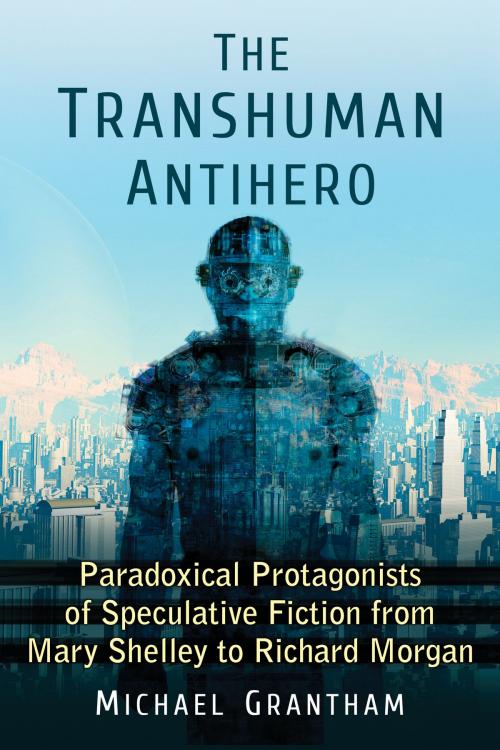The Transhuman Antihero
Paradoxical Protagonists of Speculative Fiction from Mary Shelley to Richard Morgan
Fiction & Literature, Literary Theory & Criticism| Author: | Michael Grantham | ISBN: | 9781476619552 |
| Publisher: | McFarland & Company, Inc., Publishers | Publication: | September 18, 2015 |
| Imprint: | Language: | English |
| Author: | Michael Grantham |
| ISBN: | 9781476619552 |
| Publisher: | McFarland & Company, Inc., Publishers |
| Publication: | September 18, 2015 |
| Imprint: | |
| Language: | English |
Advances in science and technology no longer change how we live, they determine it. In the not-too-distant future, techno-scientific developments may make individuals stronger, smarter, healthier and more productive--but to what end? Addressing this question, speculative fiction has created an abundance of transhuman characters, protagonists with extraordinary strength, intelligence or abilities. Often they are antiheroes, openly rejecting--or rejected by--society and acting on immoral or extreme principles that challenge readers to approve, condemn, excuse or explain. This study explores the antihero of speculative fiction as a paradoxical blend of human and transhuman. These protagonists illustrate the dynamics of individual, techno-scientific and societal norms, and blur distinctions between human and machine, biology and technology, right and wrong. Fictional works covered include Mary Shelley's Frankenstein (1818), Olaf Stapledon's Odd John (1935), Alfred Bester's The Stars My Destination (1956), William Gibson's Neuromancer (1986), Alan Moore and Dave Gibbons' Watchmen (1986-1987), Richard Morgan's trilogy (Altered Carbon, 2001, Broken Angels, 2003 and Woken Furies 2005) and Black Man (2007).
Advances in science and technology no longer change how we live, they determine it. In the not-too-distant future, techno-scientific developments may make individuals stronger, smarter, healthier and more productive--but to what end? Addressing this question, speculative fiction has created an abundance of transhuman characters, protagonists with extraordinary strength, intelligence or abilities. Often they are antiheroes, openly rejecting--or rejected by--society and acting on immoral or extreme principles that challenge readers to approve, condemn, excuse or explain. This study explores the antihero of speculative fiction as a paradoxical blend of human and transhuman. These protagonists illustrate the dynamics of individual, techno-scientific and societal norms, and blur distinctions between human and machine, biology and technology, right and wrong. Fictional works covered include Mary Shelley's Frankenstein (1818), Olaf Stapledon's Odd John (1935), Alfred Bester's The Stars My Destination (1956), William Gibson's Neuromancer (1986), Alan Moore and Dave Gibbons' Watchmen (1986-1987), Richard Morgan's trilogy (Altered Carbon, 2001, Broken Angels, 2003 and Woken Furies 2005) and Black Man (2007).















